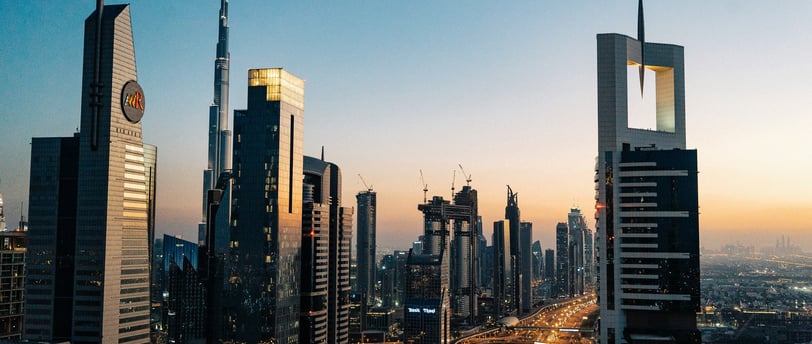Dubai: A World Leader in Healthcare Infrastructure
analysis of the health infrastructure system in Dubai
6/29/20254 min read


Dubai's Healthcare Infrastructure, World's Number 1
Dubai has established itself as a premier healthcare destination, attracting both residents and international patients seeking quality medical services. Across the emirate, there is a high ratio of healthcare facilities per capita, illustrating Dubai's commitment to excellence in medical care. Currently, there are over 30 hospitals, around 100 private clinics, and several specialized treatment centers that cater to a wide range of medical needs.
With a population of approximately 3.5 million, Dubai has successfully established an accessible and diverse healthcare network that meets the needs of a growing and multicultural population. The emirate's health authorities have focused on continuously improving healthcare infrastructure to ensure that residents receive the highest possible levels of care. This includes the acquisition of advanced medical technologies and ongoing training for healthcare professionals.
Dubai's healthcare system is structured to offer both public and private services, allowing for a wide range of options for patients. Statistics show that public health and medical care infrastructure have undergone considerable investment, strengthening Dubai's reputation as a global healthcare leader. The key to this success lies in the implementation of rigorous quality standards, ensuring that all healthcare facilities meet well-defined criteria.
Ultimately, Dubai's healthcare infrastructure plays a crucial role in the overall well-being of the population and the emirate's growing international reputation for reliable and efficient medical services.
The excellence of healthcare facilities in Dubai
Dubai is recognized as a world leader in healthcare infrastructure, offering a diverse range of healthcare facilities, from hospitals to specialized clinics and wellness centers. This diversity allows the city to meet the healthcare needs of its multicultural population as well as those of international visitors. Dubai's hospitals, both public and private, are distinguished by their modern equipment and cutting-edge services, making them attractive destinations for specialized healthcare.
Dubai's specialized clinics also play a crucial role in providing high-quality medical care. These facilities, which focus on various fields such as cardiology, orthopedics, and pediatrics, offer unique expertise and advanced treatments tailored to the specific needs of patients. In addition to physical care, Dubai is concerned with overall health, which explains the growing presence of wellness centers. These centers focus on prevention, aesthetic treatments, and rehabilitation programs, thus contributing to a healthy lifestyle.
A key aspect of healthcare quality in Dubai is the international accreditation of facilities, particularly from the Joint Commission International (JCI). This accreditation ensures that hospitals and clinics meet rigorous standards for safety, quality of care, and patient satisfaction. Obtaining this accreditation demonstrates a facility's commitment to providing exceptional healthcare. As a result, patients can trust the excellence and reliability of healthcare services available in Dubai, further cementing the city's reputation as a premier destination for quality medical care.
The Private Health System Model
Dubai's healthcare system is distinguished by its predominantly private model, which plays a crucial role in providing high-quality healthcare. This model promotes excellent medical services by providing patients with rapid access to a wide range of care. Rather than relying on a public system, residents and visitors often opt for care in private facilities, renowned for their efficiency and advanced technology.
One of the main advantages of this model is the speed of access to medical services. In a private healthcare system, waiting times for consultations, examinations, and surgeries tend to be reduced. This is particularly beneficial for patients requiring urgent care or specialized treatments. Furthermore, Dubai's private clinics and hospitals systematically invest in modern equipment and technological innovations. This use of cutting-edge technology ensures not only accurate diagnoses but also effective and appropriate treatments.
Additionally, personalized care is another strength of the system. Private facilities place a particular emphasis on the patient experience, seeking to provide personalized care that takes into account the specific needs of each individual. This allows physicians to spend more time with their patients, allowing for better communication and a deeper understanding of conditions and treatment options.
However, this private healthcare model in Dubai does not come without challenges. The cost of care can be prohibitive for some, making access difficult for those without adequate insurance. This issue of equity remains an aspect to consider when analyzing the effectiveness of a model that, while effective, could leave certain vulnerable populations behind.
The Future of Healthcare Infrastructure in Dubai
Dubai's healthcare infrastructure is constantly evolving, reflecting the city's commitment to becoming a global leader in this field. With a growing and diverse population, Dubai continues to invest in initiatives that not only strengthen the healthcare system but also attract visitors from around the world. One priority is technological innovation, which offers opportunities to improve patient care. Hospitals and clinics are adopting smart systems, such as artificial intelligence and telemedicine, to optimize patient diagnosis and monitoring.
Furthermore, the Dubai government aims to expand access to healthcare services by developing additional infrastructure. This includes the construction of new hospitals and specialized care centers, which will offer a wide range of medical services. Dubai's public health strategy also aims to address the growing demand for preventive medicine and mental health care, areas that have traditionally been undervalued. This expansion of services is accompanied by ongoing training for healthcare professionals to ensure that staff are well equipped to meet the growing challenges.
Dubai aspires to become a premier healthcare destination, both regionally and internationally. With its emphasis on quality of care, sustainability, and accessibility, the city attracts patients from neighboring countries and even overseas. The combination of advanced infrastructure, cutting-edge technology, and a patient-centric approach positions Dubai as a key player in the future of global healthcare. In conclusion, the future of healthcare infrastructure in Dubai looks promising, marked by initiatives that continually strengthen and diversify healthcare offerings in the region.
Connect
Get in touch for your property needs today.
Support
Follow
© 2025. All rights reserved.
